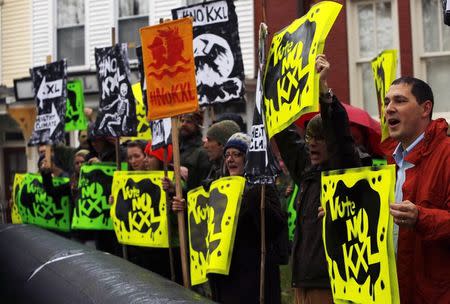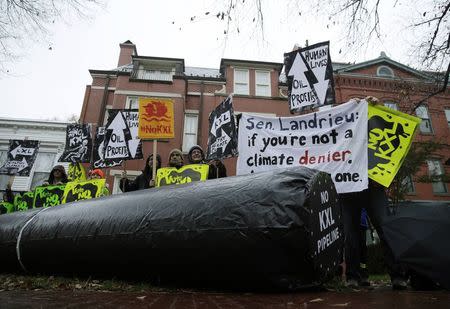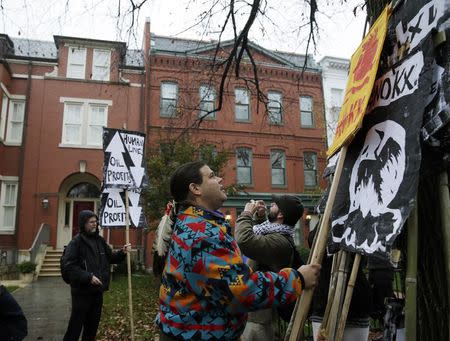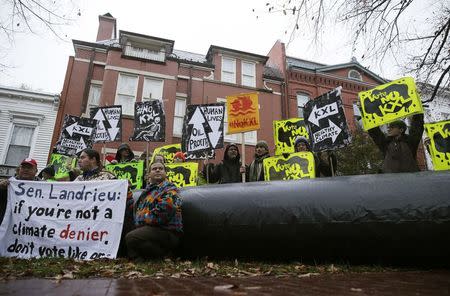Keystone Senate vote hangs in balance after Obama remarks
By Timothy Gardner and Richard Cowan WASHINGTON (Reuters) - Supporters of the Keystone XL pipeline in the U.S. Senate scrambled on Monday to gather one last vote to pass a bill that authorizes the project that would help send Canadian oil to the U.S. Gulf, a task that became harder after President Barack Obama made his toughest comments yet on the topic. Momentum appeared to be going against the controversial pipeline as Democratic Senator Jay Rockefeller of West Virginia told reporters late on Monday that he would vote against it on Tuesday. At the same time, Democratic Senator Carl Levin of Michigan also proclaimed to reporters, "I'm voting no," and independent Senator Angus King of Maine said he "probably" would vote against approving the oil pipeline. King added that he would make his final decision during the vote "when they get to the Ks" in the roll-call. The three senators were being heavily lobbied by pipeline backers. Rockefeller and Levin are retiring at year's end and some had thought they could be persuaded to vote yes in a vote that appears to be going down to the wire on Tuesday. Senator Mary Landrieu, a Louisiana Democrat, is co-sponsoring the bill with Republican Senator John Hoeven of North Dakota. She faces a runoff for another six-year term next month and has been working hard to gather the 60th vote needed to pass a bill that the House of Representatives approved on Friday. The Senate is expected to vote as early as 6:15 p.m. EST (2315 GMT) on Tuesday on TransCanada Corp's project that would transport more than 800,000 barrels per day of oil. All 45 Senate Republicans support the pipeline, so backers need 15 Democrats to reach the 60 votes needed under an agreement outlining the rules for debating and passing the bill. Obama criticized the project during a trip to Asia late last week, saying it would not lower fuel prices for drivers, but would allow Canada to "pump their oil, send it through our land, down to the Gulf, where it will be sold everywhere else." His adviser John Podesta reiterated Obama's message in a call with reporters on Monday: "I would just repeat what he said, which is we ought to take the time to let the process play out and let the analysis come in." The State Department has been studying the pipeline proposal, and its approval is needed because the project crosses an international border. Republicans and energy analysts said those comments likely meant Obama was leaning toward vetoing any Keystone bill that passes, either this year or early next year. "The president ... is basically threatening a veto this time," said Ryan Bernstein, an aide to Hoeven. "Obviously, this makes it harder to gather votes." Many environmentalists oppose Keystone, saying it would spike emissions linked to climate change and that the oil could be sold abroad. Construction workers and other supporters say it would create thousands of jobs. Hoeven plans to reintroduce the bill in January or February if it does not pass on Tuesday. Supporters could introduce a standalone bill or attach Keystone language to another bill that would be hard for Obama to veto. Republicans say they will have 60 votes next year after the party's strong showing in this month's U.S. midterm elections which will give them new senators including Joni Ernst of Iowa and Cory Gardner of Colorado. (Additional reporting by Valerie Volcovici and Susan Cornwelll in Washington; editing by Ros Krasny, Matthew Lewis and Cynthia Osterman)




